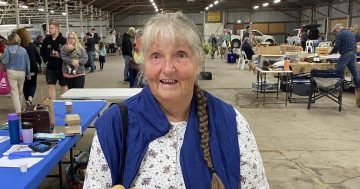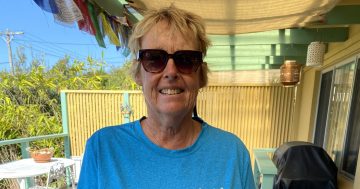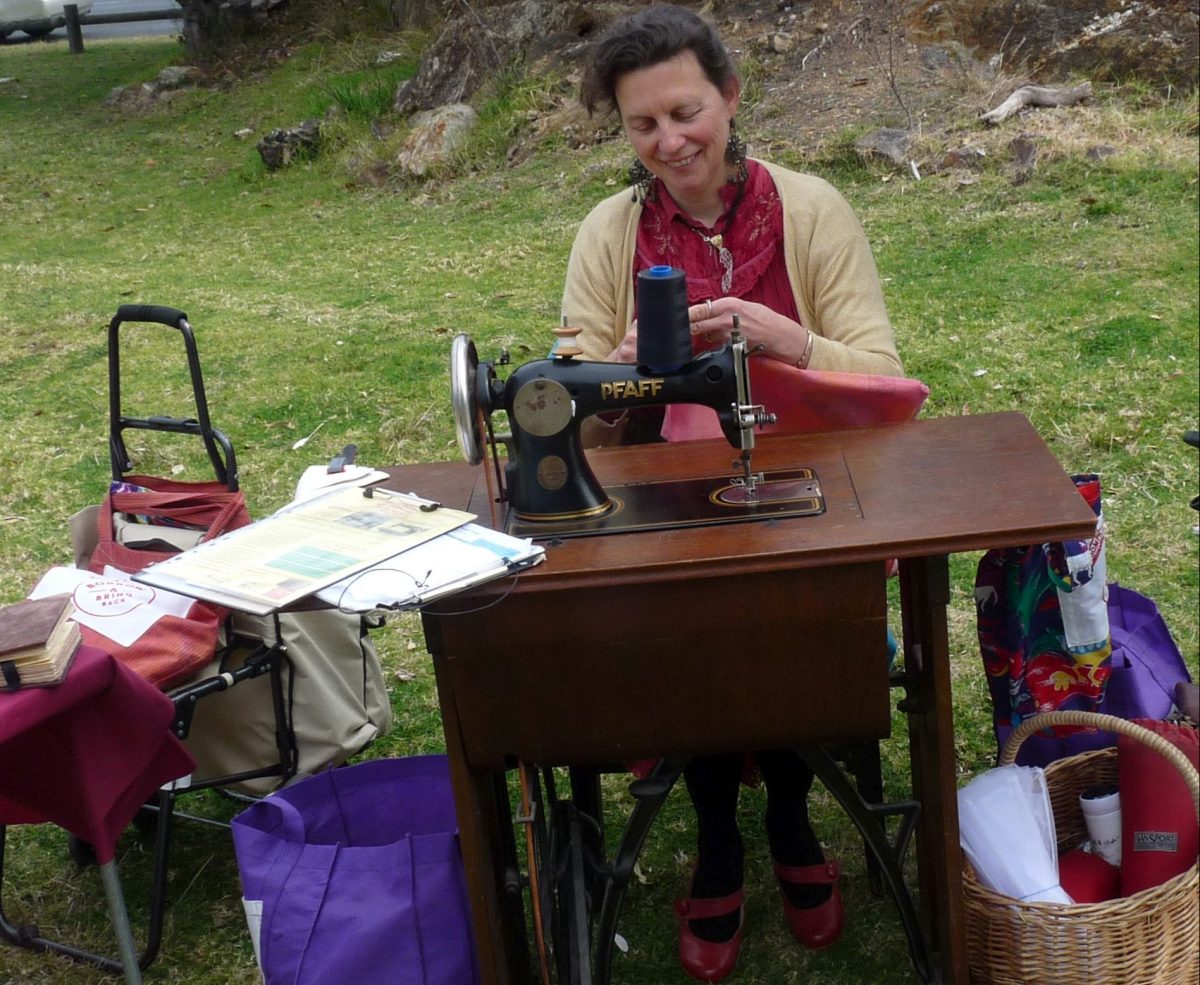
Dorte Planert with her vintage Pfaff, helping the planet one Boomerang Bag at a time. Photo: Supplied.
On the NSW South Coast, it looks like they have the notion of perfect recycling in the bag – literally.
Using an idea developed in Queensland, Bega woman Dorte Planert and her small band of helpers are making Boomerang Bags.
Boomerang Bags are made by volunteers from fabrics otherwise destined for landfill. Today the grassroots environmental movement operates in more than 1100 communities worldwide.
Originally from Germany, Dorte and her partner Martin moved to Bega about 30 years ago for “an adventure”.
Although she and her husband are professional jewellery designers, their passion lies in environmental and community work.
Dorte said she started Bega Valley Sapphire Coast Boomerang Bags back in 2015 to reduce five things: plastic waste, landfill, fossil fuel usage, carbon footprint and climate change.
Today, more than 4000 bags have been distributed for free throughout the valley to wholefood stores, cafes, markets and individuals.
When she started the Boomerang Bags project in Bega, Dorte accepted offers of old sheets and doonas to make the bags, saving them from landfill.
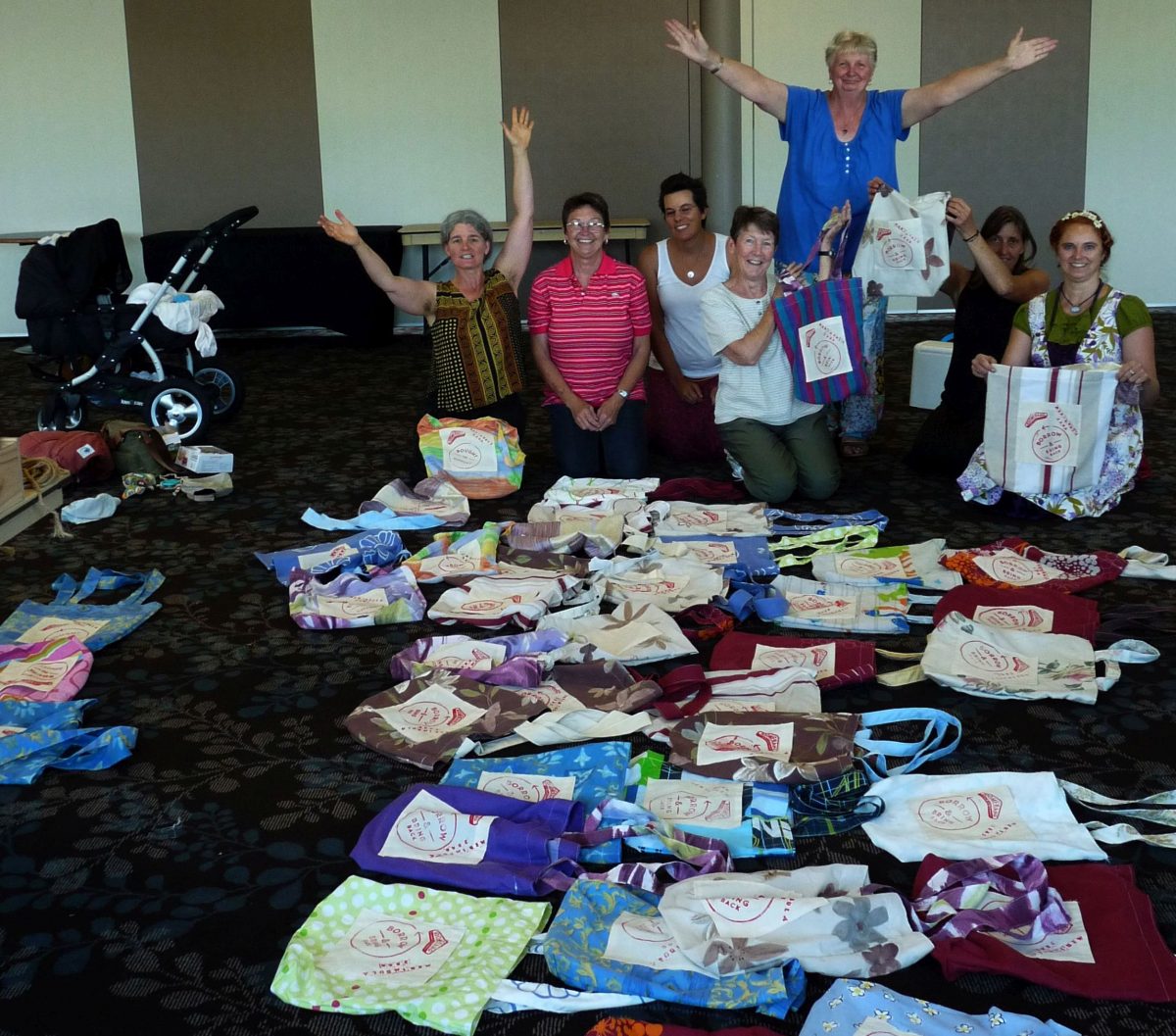
Volunteers celebrate the completion of the first Boomerang Bags workshop held in Bega back in 2016. Photo: Supplied.
She set up regular sewing circles where locals of all ages could drop by to help sew bags, cut fabric or whatever else they wanted to do.
“So it became more than just a group of people sewing,” she said.
“People of all ages came for different reasons. Some were lonely, some were new to the town and wanted to meet new people, others just wanted to help save the environment.”
In the beginning, there was a charge for the bags. That money was used to set up the operation, as was a waste reduction grant from the Bega Shire Council and another from the Bendigo Bank.
The grants and donations helped the group cover the cost of sewing machine repairs as many of them had been donated and needed some fixing.
The money also covered stall fees and room rentals for the sale of the bags, reimbursing helpers at workshops, teaching sewing and buying equipment like needles and thread.
Today, Dorte will tell you proudly that they have few to no expenses. Fabric is donated to make the bags and they have enough gear on-hand to make them without having to buy new. Dorte sometimes uses her old treadle sewing machine, which uses no power. If she or another group member has to use an electric machine, the energy used is minuscule.
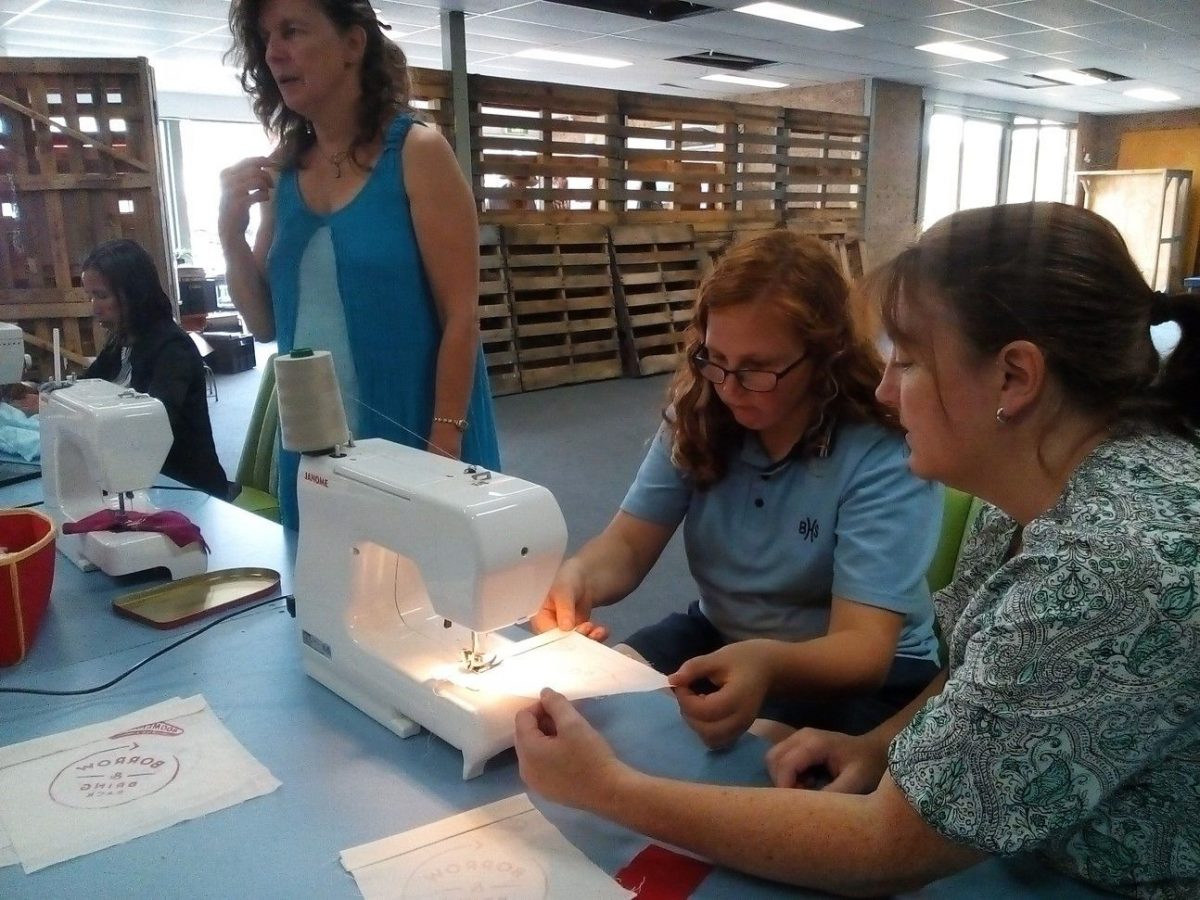
Dorte Planert works with youngsters from Bega High School’s special needs group to make Boomerang Bags. The fabric bags are designed to be used instead of single-use plastic bags. Photo: Supplied.
By weighing the bags, she guesstimates that the 4000-plus bags her group has made and distributed would save almost half a tonne of waste going into landfill – about 520 kg.
“If each of the 4000 bags is used to haul books or groceries once a week, using two fewer single-use plastic bags, that equals 8000 fewer plastic bags used every week,” she said.
“With 52 weeks in a year, that’s 416,000 fewer bags a year – every little bit helps.”
At its busiest, more than 100 people, mainly women, were involved in the group, sewing, ironing, delivering bags, holding information sessions and fund-raising. Today, the numbers have dropped off and Dorte is keen to welcome new members. Anyone who can offer an hour or a day of their time is welcome.
Email [email protected] for more information on the Bega Boomerang Bags operation. For more general information on the global movement visit the Boomerang Bags website.







